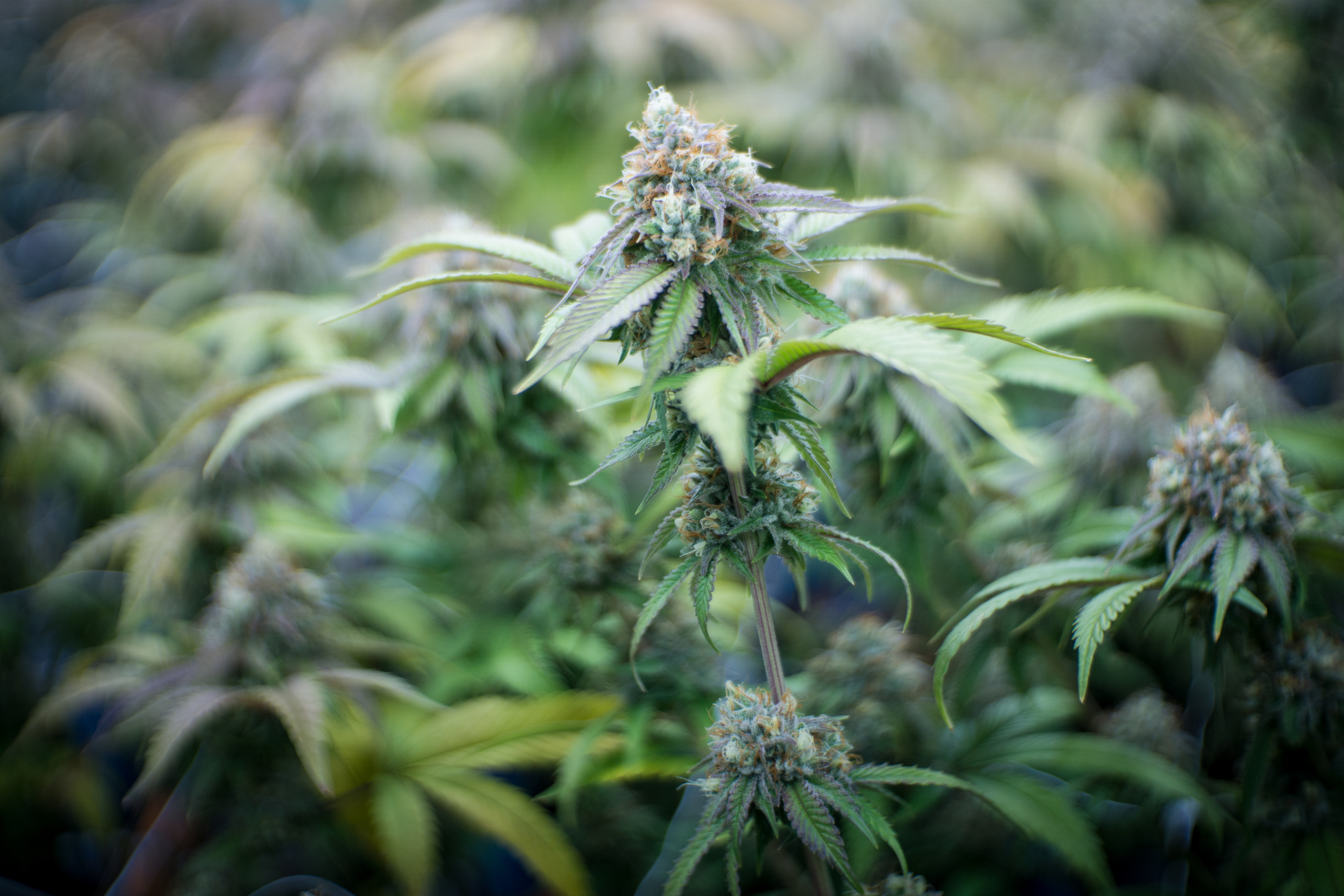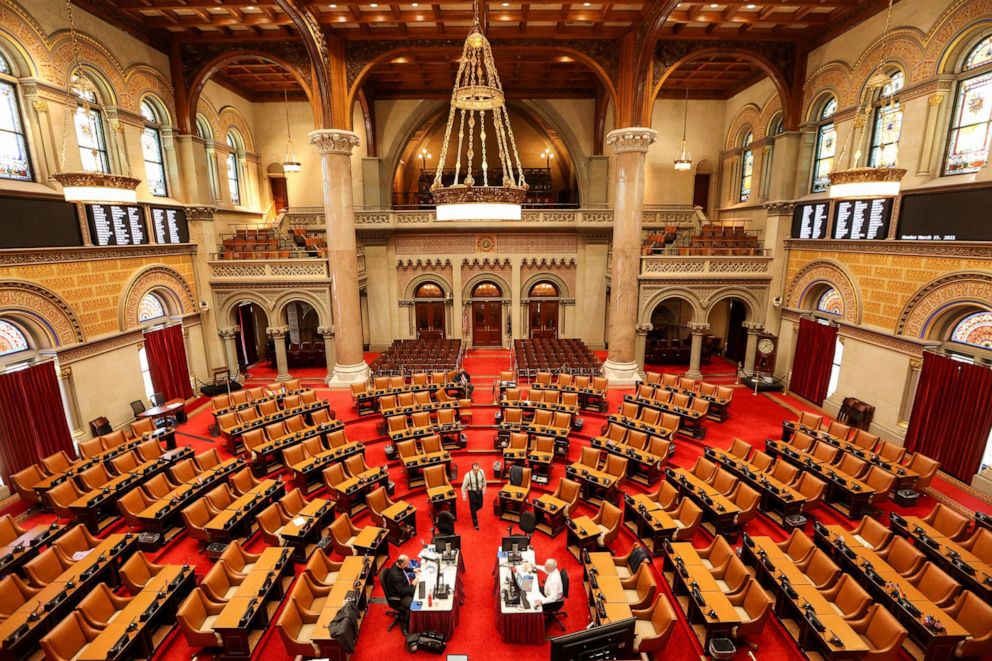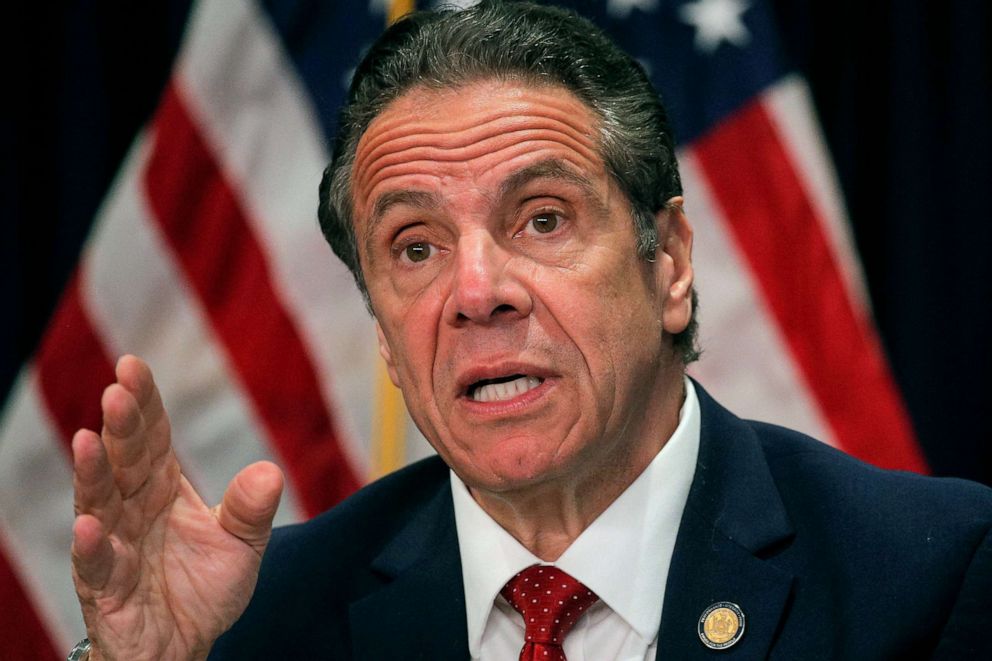New York legalizes recreational marijuana, expunges former pot convictions
The state could see $350 million in additional tax revenue.
New York state has legalized marijuana for adults and will expunge the criminal records of people previously convicted of crimes that would be legal under the new law.
Gov. Andrew Cuomo signed the legislation on Wednesday, roughly 12 hours after the Legislature approved it. New York is now the 15th state to allow recreational marijuana for adults.
"This is a historic day in New York -- one that rights the wrongs of the past by putting an end to harsh prison sentences, embraces an industry that will grow the Empire State's economy, and prioritizes marginalized communities so those that have suffered the most will be the first to reap the benefits," Cuomo said in a statement.
The legislation could create up to 60,000 jobs and generate $350 million in annual tax revenue for the state, according to the statement.
A total sales tax rate of 14% includes 9% allocated for the state, 3% for the municipality where the sale is made and 1% for the county. From that 9%, 40% has been earmarked for communities disproportionately affected by prior drug laws, 40% for schools and 20% for drug treatment and education.
Under the final legislation, New Yorkers will be allowed to possess 3 ounces of marijuana and grow up to three mature pot plants at home, with a limit of six per household.

Anyone previously convicted of possessing an amount of marijuana now under the legal limit automatically will be subject to expungement and re-sentencing.
"This effort was years in the making and we have finally achieved what many thought was impossible, a bill that legalizes marijuana while standing up for social equity, enhancing education and protecting public safety," state Senate Majority Leader Andrea Stewart-Cousins said in a statement Wednesday.
The legislation will create the Office of Cannabis Management, which will regulate the sale and distribution of both recreational and medical marijuana, which was legalized in 2014. A five-member board will lead the office, with three members appointed by the governor and one appointed by each house of the Legislature.

"My colleagues and I knew it was important to do this the right way -- in a way that would include those targeted and frequently excluded from the process," state Assembly Speaker Carl Heastie said in a statement.
Sales might not start until 2022, as the state will take time to establish its regulatory framework, legislative sources told ABC News.
The pressure on state leaders to legalize marijuana has increased after several states, including for New York neighboring New Jersey, recently approved measures to allow recreational cannabis. Marijuana legalization advocates applauded New York leaders for passing the legislation during this year's session.
"The Assembly and the Senate modeled what democracy actually looks like when the legislature allows progressive movements to lead towards justice," Jawanza James Williams, the director of organizing at VOCAL-NY, said in a statement Tuesday night.

"We expect 2021 to be a record-breaking year for legislatures legalizing cannabis," Steve Hawkins, executive director at the Marijuana Policy Project, said in a statement. "More than two-thirds of Americans believe it's time to end prohibition and this move represents the latest example of elected officials joining the chorus of support for legalizing and regulating cannabis for adults."




